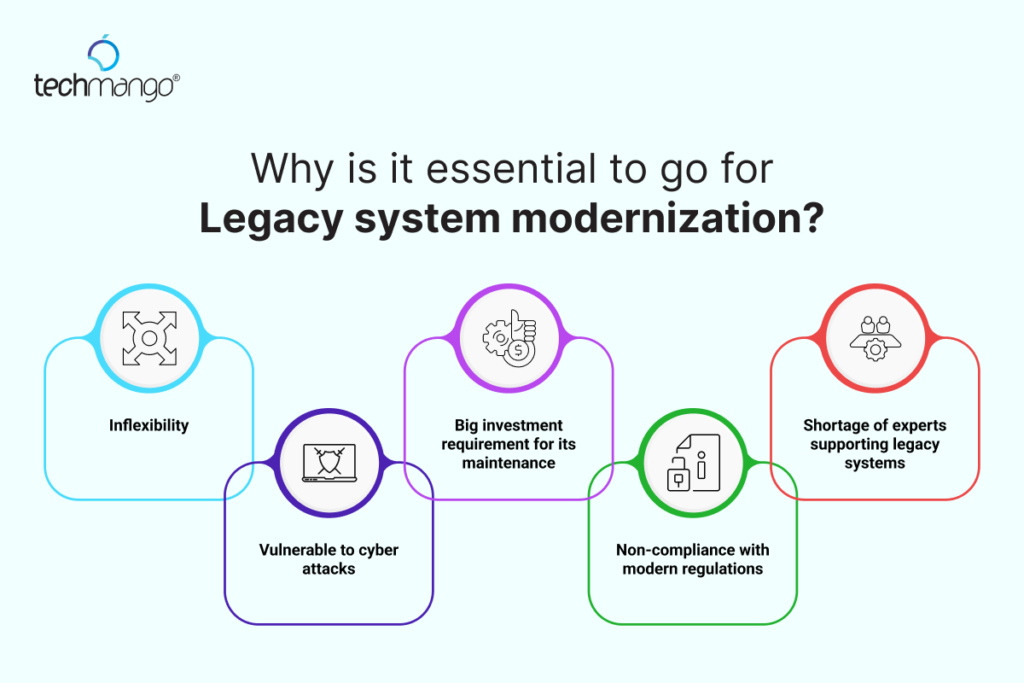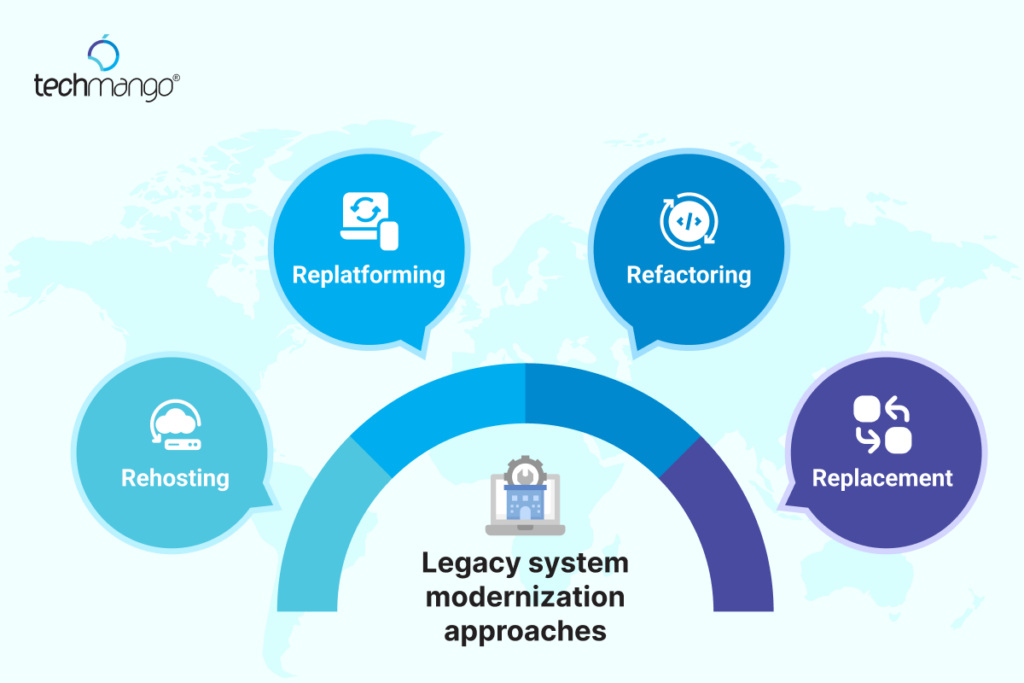Do you know that outdated software is one of the key reasons why adapting business to new needs and tasks is impossible? With today’s rapidly evolving business dynamics, keeping the software abilities up to date can be challenging. But you need to keep in mind that in this digital world, your software and systems can normally make or break your capability to evolve, adapt, and stay competitive. So, legacy system modernization is the ultimate need of the hour.

However, a legacy system will not be just determined by its age. It can be because of a lack of support or its inability to meet the needs of an organization when a system is known as a legacy. These legacy systems, characterized by outdated interfaces, obsolete technology, and ineffective processes, pose challenges to the competitiveness and overall productivity of a business.
So, without any surprise, legacy system modernization is a must for companies that wish to reinforce their competitive position. To say in short, legacy system modernization refers to the process of replacing or upgrading outdated software and hardware systems of an organization.
In this blog, we will see why legacy system modernization is a must for businesses and some of the best approaches to carry out legacy system modernization in your organization.
Why is it essential to go for Legacy system modernization?
Legacy systems are inflexible
Legacy systems include rigid structures that hinder the integration of new functions and limit adaptability. In today’s business environment where flexibility and agility are paramount, inflexible legacy systems can prevent the organization’s ability to implement innovative solutions, respond swiftly to market changes, and stay competitive.
Legacy software is vulnerable to cyber attacks
Outdated hardware and software are more susceptible to security vulnerabilities, thereby making them the main targets for cyber attacks. Legacy systems become very challenging to secure with the continuous growth of cyber threats. This will eventually put sensitive business information at risk. So, legacy system modernization is important for implementing robust security measures and protecting the organization against potential breaches.
Legacy software needs big investments for its maintenance
One of the key reasons for considering legacy system modernization is that significant investment is needed for maintaining outdated enterprise systems. Legacy systems will demand continuous support that often involves high costs for patching, troubleshooting, and adapting to changing business requirements. These expenses will definitely accumulate over time, draining financial resources that could be used in a better way for growth and innovation
Related Blogs
Legacy Modernization: The Key to Success for Automobile Spare Parts Manufacturing Companies offered by Techmango
Legacy systems don’t comply with modern regulations
With the constant evolution of compliance standards and industry regulations, legacy systems frequently struggle to keep up. Non-compliance will result in financial penalties, legal ramifications, and damage to the organization’s reputation.
Legacy system modernization will make sure that the hardware and software align with current regulatory needs, minimizing the risk of legal issues and ensuring a seamless operation within the legal framework.

Shortage of experts supporting legacy systems
Last but not least, another notable reason for modernizing legacy systems is the scarcity of professionals with expertise in supporting and maintaining outdated technologies. This shortage of skilled professionals will surely lead to increased vulnerability to errors, prolonged system downtimes, and an overall decline in system reliability.
Legacy system modernization approaches
I hope you now understand the necessity of going for Legacy system modernization. Listed below are some modernization techniques with their own set of considerations and advantages and let us see those approaches here.
Rehosting
It involves the migration of existing legacy systems to modern infrastructure without making any notable changes to the application. This approach is relatively cost-effective and quick but may not fully address primary inefficiencies.
Replatforming
In this approach, the organization will retain the existing codebase but will upgrade the underlying platform or infrastructure. This enables some degree of modernization while reducing the risk and cost associated with complete maintenance.
Refactoring
It involves restructuring the architecture and codebase of the legacy system in order to align with modern standards. Although the process is more expensive and time-consuming, it offers the opportunity to enhance scalability, performance, and maintainability.
Replacement
In certain cases, organizations opt for fully replacing the legacy system with tailor-made solutions. This approach provides more flexibility but needs careful planning and execution in order to ensure a seamless transition.

Choosing the right approach for Legacy system modernization
Determining the feasible approach for modernization approach depends on various factors including timeline, the organization’s budget, the complexity of the existing legacy system, etc. Collaboration with experienced IT experts is important to minimize cost, optimize performance, and scalability, and achieve a quick transition. Such experts can guide you entirely throughout the modernization journey.
But, the question now is where to find an apt legacy system modernization partner who can meet all your expectations.
Techmango, a renowned IT service provider has immense expertise in delivering astounding digital business solutions with unrivaled performance for different business verticals across the globe. Our unparalleled services include legacy system modernization as well. We understand that modernizing legacy systems is not just a technology upgrade but a strategic imperative for many businesses looking to flourish in today’s competitive environment.
So, our experts focus on providing the right and best-in-class modernization approach for businesses that can meet their unique needs and goals without any hassles. Therefore, approach us to get the most fitting legacy system modernization approach for your business and stay ahead in the ever-evolving digital landscape.







